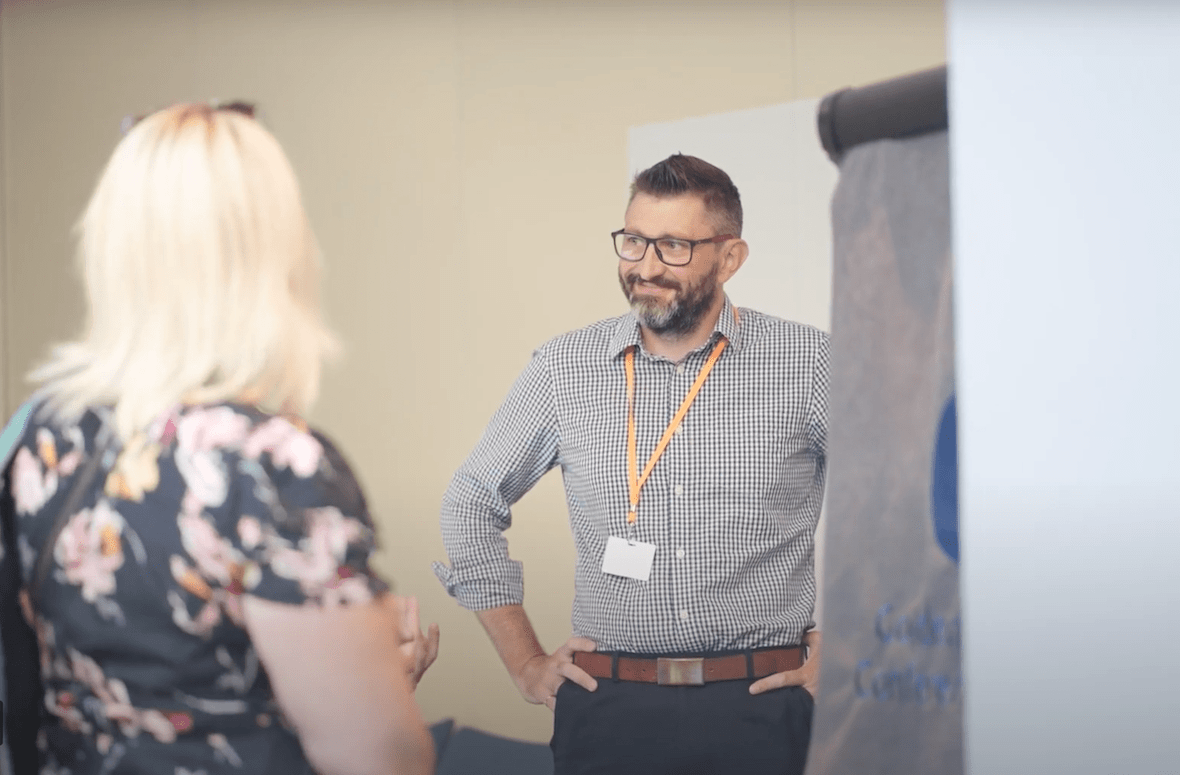Mark Hindle, Orion Health vice president, UK and Ireland, looks ahead to this year’s customer
conference. The future of shared care records, leveraging value from the data they contain, and
putting information into the hands of patients will be hot topics for debate.
When I joined Orion Health earlier this year, I said my priority was to work with customers to develop their shared care records and start putting the data they contain into the hands of patients. Some months on and fresh from meeting our customers around the country, those are still my priorities.
Along the way, I’ve also been thinking about how we support the further development of the shared care record programme. How do we go faster, help the NHS leverage more value from data, deliver more benefits to staff and join up more services around the person? How do we accelerate the aim of each person having a life-long, joined-up health and care record? And how do we make the data sets that shared care record projects assemble work harder – to become the platform to enable systems to see the bigger picture and then move forward with purpose?
If you read your LinkedIn feed and browse industry websites, you’d be forgiven for thinking we’re already there – we’ve completed it, levelled up, the longitudinal record is live, patients are empowered and we’re commissioning and delivering services around them. The reality is very different.
Up and down the country, I have been struck by the difference in the maturity of shared care records. One of our customers has 210,000 views a month. Another has just 200. Some have patients accessing their records, others don’t. Care plans and documents are shared differently. And there is a lively debate about viewing versus doing and the role of shared care records in a crowded landscape of organisational systems, priorities and funding streams.
We, and the NHS organisations that partner with us, are on a journey. I joined Orion Health to innovate from the front of the market, and we’re very proud that our technology is used around the world to aggregate and share data as a market leader in our space. As is often the case, the technology the NHS needs already exists. The challenge is to work out how we can learn lessons from successful projects and spread them to others. Quickly. We need to improve the carer and professional experience – less time seeking information, fewer issues across boundaries, empowered with a more complete picture of the person in front of them, or at home, or elsewhere in the community. Citizens are still repeating their life stories to health and care professionals – tests are still repeated and their preferences and needs are not routinely shared. Improving the citizen’s experience will greatly increase confidence in the health and care system at a time when it’s never been lower. And the data experience is not good enough – so many silos, so much unstructured data, and a real lack of meaningful insights at the point of care as a result.
That’s not to say that we haven’t made great progress. A recent study showed for the first time that there is a reduction in ED admissions where shared care records are deployed. Data sets that would not otherwise exist have been assembled. We’re tackling the thorny issues around interoperability with more sophisticated tooling and NHS England has had real, meaningful feedback that the programme is making a difference on the frontline of health and care delivery around the country. We know that shared care records are driving the population health conversation across regions and supporting data-driven decision making.
So, looking forward to our annual gathering of Orion Health customers and partners in London in a couple of weeks, we’ve based the theme around sharing best practices and learning from across the UK and Ireland, and internationally. I want this to be a conversation, with like-minded people, customers, colleagues, partners and other vendors, both competitive and complementary. I think an important part of the national conversation needs to be around how we ask the supplier community to step up, to work together, to be more open and to play to their respective strengths – in the interest of the valiant NHS organisations on the front line whom we partner with.
As a result, the event looks a bit different to some of the conferences that we’ve run in previous years. We will have representatives from across the UK, from NHS England, France, Spain, Ireland, and New Zealand of course. I’m also delighted to be welcoming Terri Stewart, CEO of the New Mexico Health Information Exchange, who will also be joining us and sharing her perspective, lessons, and exploring the synergies facing health technologists and policymakers across the Atlantic.
Innovation across the supplier landscape
We’ve invited a number of interesting suppliers representing pockets of innovation from different parts of the country to share their experiences with us.
One company with some interesting ideas about how to move data between different integrated care systems is Synanetics. It’s a critical area – NHS care across boundaries is a significant challenge across the country. I’m delighted that Synanetics will be at the conference talking about how Interweave and their data platform thinking has enabled some ICS areas to tackle this issue head-on.
There has been a lot of interesting reference ability from the Yorkshire and Humber Care Record, which is recognised as a national leader when it comes to thinking about how the shared care record can be used to trigger the transactions that drive health and care. Their team has deployed a highly federated data and integration model and I’m looking forward to hearing Ian Clucas, Deputy CIO of Interweave, talk to us about the advantages and challenges of their technology and approach.
More recently we’ve started working with Black Pear, renowned for their pioneering work across primary and community care. Their care plans and interoperability capabilities will be described to us on the day and there is an interesting dialogue to have around how they can accelerate access to structured primary care and community data and how that compares to GP Connect from NHS England and the MIG.
There are some other suppliers in the room – I won’t reveal all of them ahead of time, but I’m sure we’ll have a varied and lively debate on many of the topics we will cover on the day and I’m really looking forward to starting this conversation and sowing the seeds of collaboration.
A global perspective
Taking a step back from some of the details of the business of data sharing, our keynote speaker will be Professor Martin Curley, leader of the innovation institute at Maynooth University in Ireland. Martin is
a global thought leader on how healthcare challenges globally cannot be fixed with marginal gains. He argues that we need technologies and solutions that deliver 10X improvements across, patient outcomes, cost and workforce efficiency.
Martin’s pioneering work on ‘Stay Left, Shift Left’ relates to the drive to keep people out of emergency and elective care. By keeping people on the left side of the care continuum (preventative and proactive care), his model suggests we can make a huge difference to lives around the World whilst also recognising the need to change the underlying patient outcomes and costs in acute care settings.
His overall aim is to find 10X technologies that can help keep people on the left of the continuum, move others towards the left, but also reduce the costs of care while improving outcomes across the board. Martin will be sharing his perspective with us, which he has recently presented at both the WHO and the UN as he seeks to catalyse a global movement.
Putting the patient at the centre
The question that pulls all this together is: what is the point? We have made a huge investment in shared care records, but unless we keep them current, put the data to work, and find ways to connect patients, we will lose momentum.
So, we have to work together to keep tackling the adoption and utilisation challenges, use the data to drive efficiency and improve the patient experience because we have been able to join up health and care around them. Ultimately, this will lead to services being designed differently across health and care systems.



